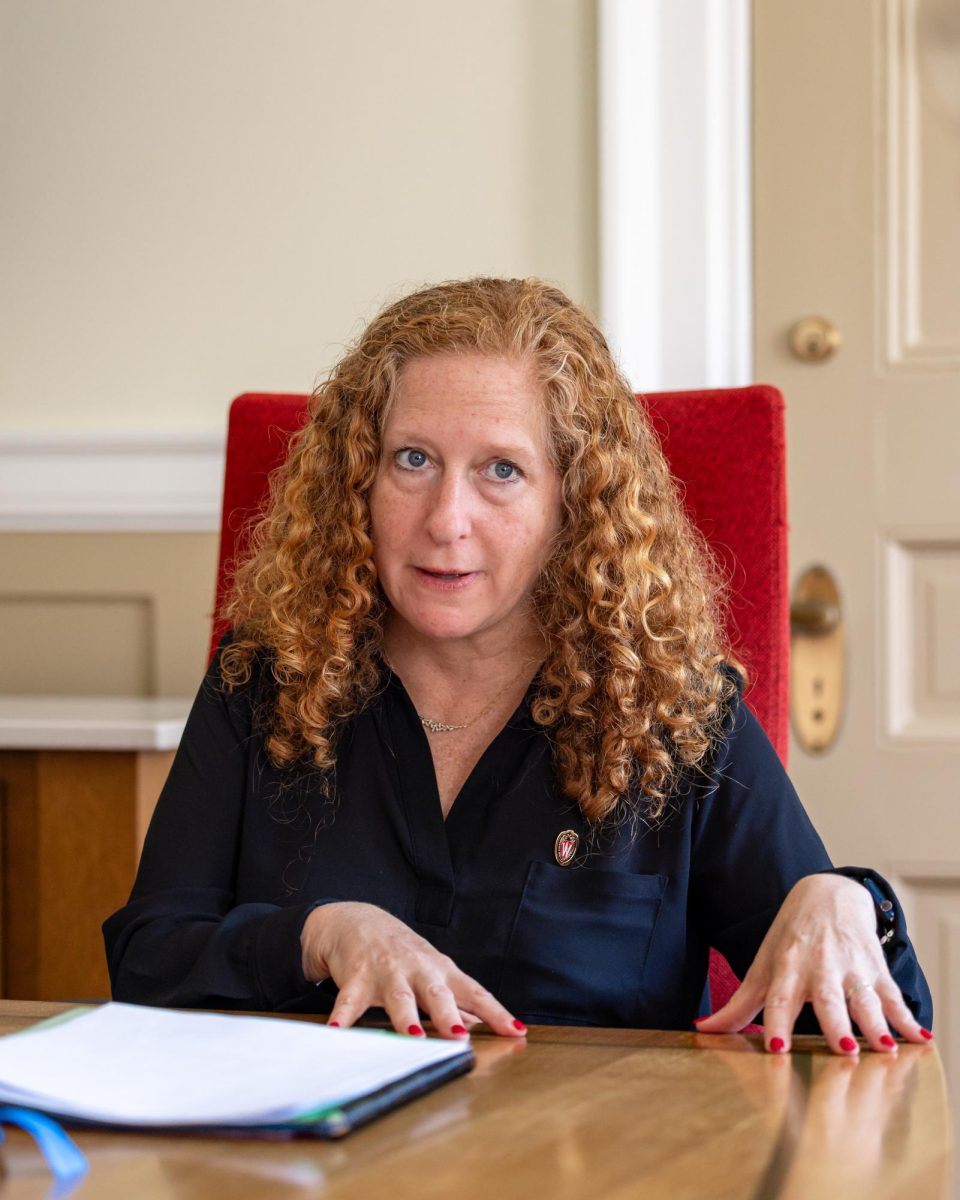ASM passed legislation endorsing the Teaching Assistants’ Association’s Meet and Confer campaign, an initiative to establish regular, voluntary meetings between the Graduate Worker Union of the University of Wisconsin and Chancellor Mnookin. The meetings would allow the union to have a voice in how financial resources that may affect graduate student workers are allocated, according to TAA’s website.
Founded in 1969, TAA is the oldest graduate student worker union in the world, Co-president Madeline Topf said. In the past 30 years, TAA has achieved benefits for graduate student workers like workload limits and overwork protection, child care assistance and comprehensive health care, according to TAA’s website.
Despite TAA’s growth and achievements, they are not recognized as the certified bargaining representative for UW graduate assistants at this time, UW spokesperson John Lucas said.
Around this time last year, higher education labor union leaders, all represented by American Federation of Teachers-Wisconsin, came together to create a joint plan to address the lack of consulting graduate student workers receive regarding budgeting issues like salary, hours and benefits, Topf said.
A formal request to the chancellor for a Meet and Confer would be the union leaders’ attempt at having a seat at the table concerning these decisions to help maintain a stronger UW system, Topf said.
“It’s really essential that we’re able to speak with administration about what we’re going through, and that they hear from us when they’re going to make a decision that affects us, because we would understand how it would affect our work and our livelihoods,” Topf said.
But, following a formal request last year to establish these regular, voluntary meetings, Mnookin declined, in part because she already meets with ASM, UW’s official shared governance body of graduate and undergraduate students, Topf said.
In an attempt to get a foot in the door, TAA reached out to a graduate student representative for ASM, Rep. Thomas Niepsuj, asking if he would voice his support for TAA to ASM, Niepsuj said. From there, once TAA had collected signatures in support of a Meet and Confer with the chancellor, Topf and Niepsuj had further conversations about how ASM could more directly support TAA, Niepsuj said.
ASM ultimately passed legislation in the form of a proclamation supporting TAA’s efforts, Niepsuj said.
As an Endocrinology and Reproductive Physiology graduate student, Niepsuj said he is in a more privileged position regarding graduate funding. STEM departments often have more funding for graduate students than humanities and liberal arts students, who may get very little to no support and a much smaller minimum pay, Niepsuj said.
“I, as a representative, think it’s my duty to uplift other graduate students,” Niepsuj said. “When a graduate student is being very vulnerable and coming to ASM and speaking in a way that’s a huge advocacy effort, I want to uplift them and showcase them.”
Niepsuj is no stranger to a demanding workload. Between the intense schoolwork, research and issues arising in their personal lives, graduate student workers have enough on their plate, he said. A group of graduate students like TAA, who have the extra bandwidth and energy to tackle disparities they see on campus, need to be listened to, Niepsuj said.
TAA’s ultimate goal is to have a space where they can present the chancellor with issues they’ve been having or changes they’d like to see implemented, Topf said. TAA understands some of their goals like ending segregated fees or increasing graduate students’ stipends are financial factors that the university may depend on, but TAA’s wish is to be an aid in determining solutions for the issues they raise, Topf said.
Second-year PhD student and teaching assistant for Cultural Foundations of Learning and Development Woomok Jeong said a huge difference could be made if graduate student workers were given a louder voice in university funding decisions.
With the rise of inflation and rental fees for international students, ensuring the university allocates enough funding to support its graduate students is essential for him to study here, Jeong said.
TAA fights generally for better support for graduate student workers, and one of the factors that tie into that, which TAA is aiming for, is paid medical leave, Topf said.
Jeong struggled last semester when he was sick and the administration didn’t consider finding a substitute to fill his place, he said.
“If I am sick, then there would be no class,” Jeong said. “And I have to compensate next time and ask for help from other TAs, but it is kind of a burden to them as well.”
TAA’s immediate actions moving forward are to get people more and more engaged in their efforts, Topf said. TAA will also continue to run and build campaigns like Meet and Confer and For a Better PhD in the Biosciences, a campaign advocating for higher stipends, the elimination of unpaid TA requirements and improvements in the workplace conditions for graduate students, Topf said.
The support demonstrated by these campaigns is evidence they can use in their conversations with the chancellor if they achieve their desired meetings, Topf said.
Another next step for TAA is communicating to the Universities of Wisconsin Board of Regents that Meet and Confer should be a Regent policy, Topf said. A part of this process includes graduate student workers sending personal letters to the Regents about their experiences.
“There’s some pretty terrible stories out there,” Topf said. “If we had just had these meetings, we could’ve avoided a lot of pain and damage to the institution.”
Regardless of whether TAA achieves Meet and Confer, they will not be deterred from campaigning, growing their union and having their voices heard, Topf said. Even if they have to make their voices louder to garner the desired attention from the university, Topf said that’s just what they’ll do.



